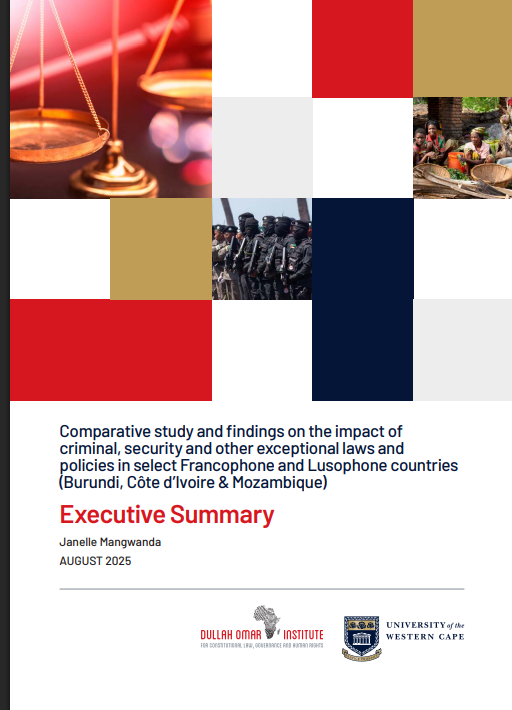Across Africa, criminal, security and “exceptional” laws often serve purposes far beyond their stated intent; they become instruments that undermine human rights, stifle dissent, and perpetuate systemic injustices. But how do these legal frameworks operate differently across colonial linguistic divides, and what impact do they have on citizens’ fundamental rights? The Dullah Omar Institute’s latest comparative study examines the real-world effects of criminal, security and exceptional laws in three diverse African contexts: Burundi, Côte d’Ivoire, and Mozambique.
By analysing Francophone and Lusophone legal traditions, this research reveals how colonial legacies continue to shape contemporary justice systems. It explores the varied ways these laws impact arrested, accused, and detained persons across different legal frameworks. It also provides critical insights into how exceptional laws operate in practice, offering essential evidence for advocates, policymakers, and legal reformers seeking to strengthen human rights protections across the continent.
Read the full report below.

